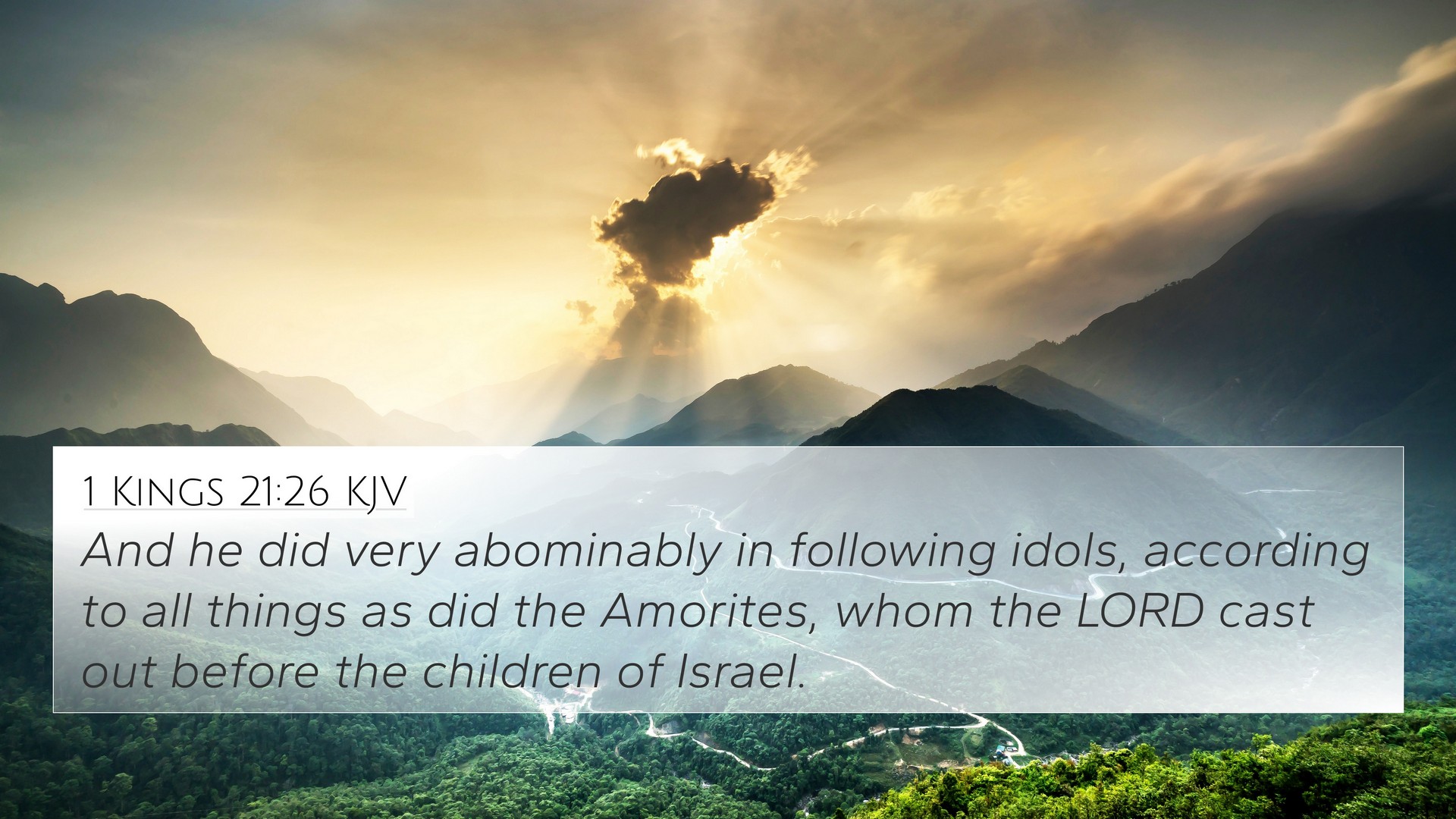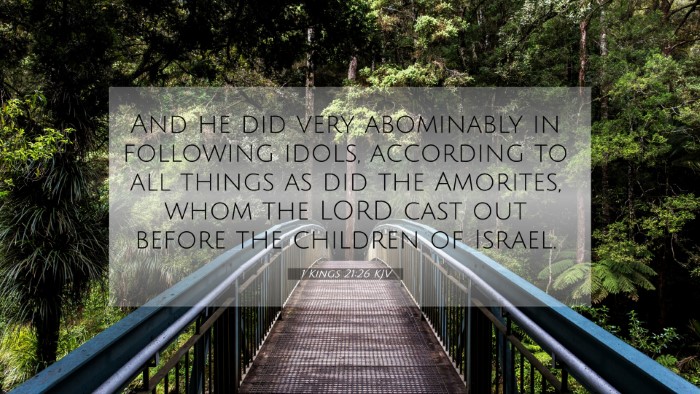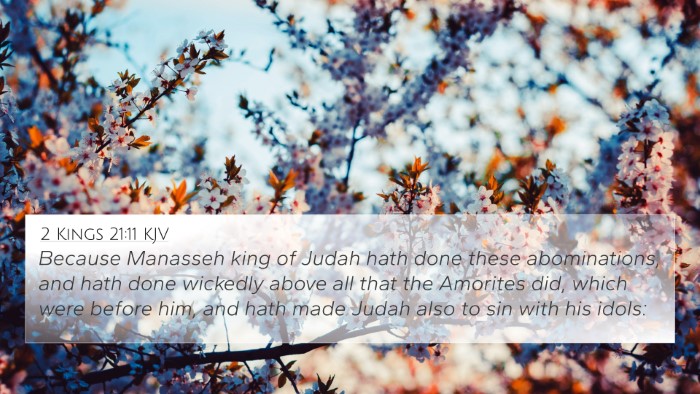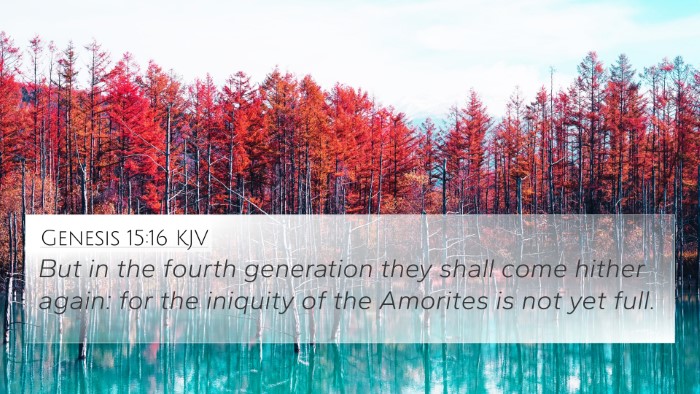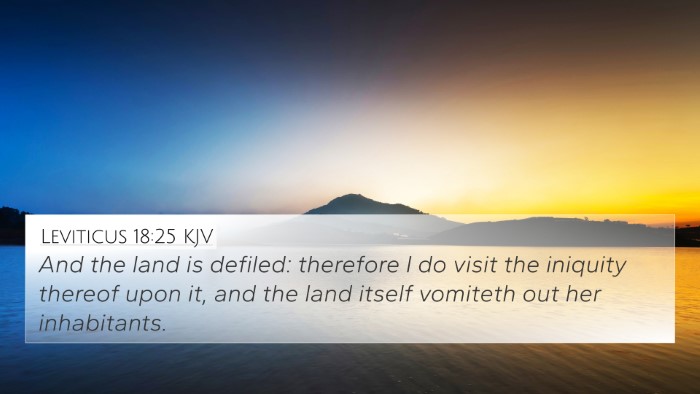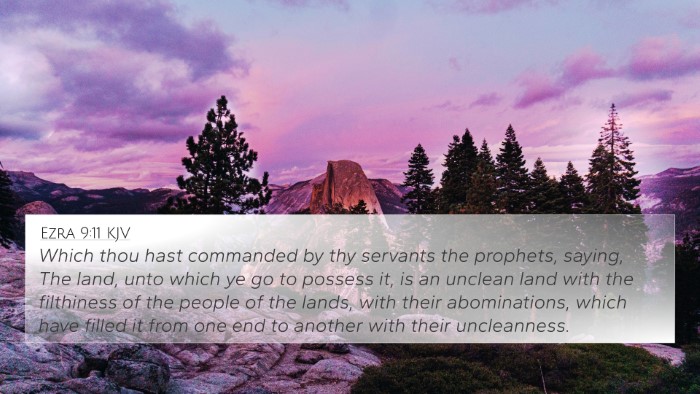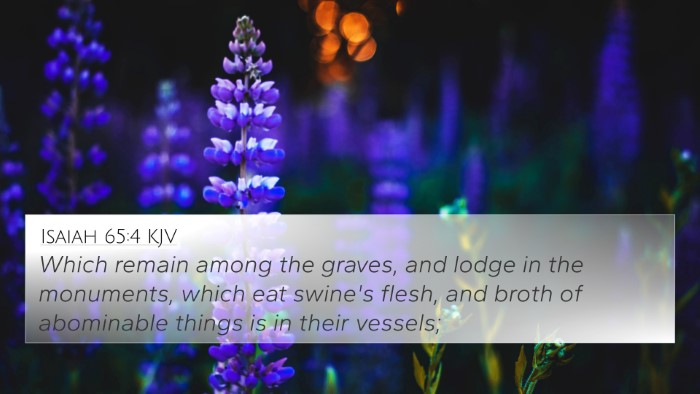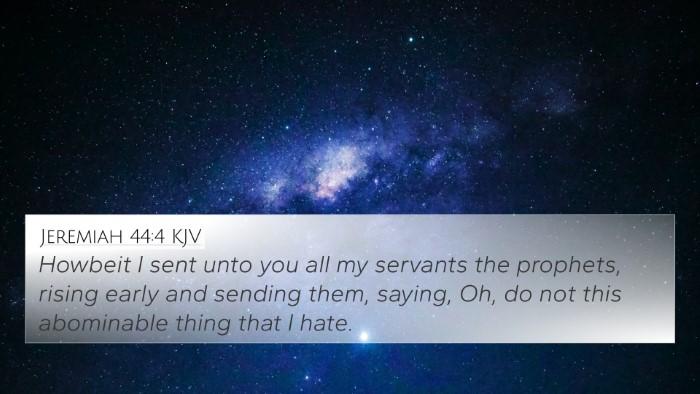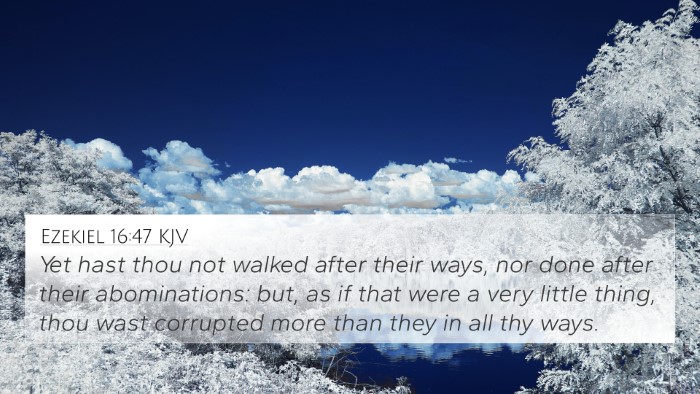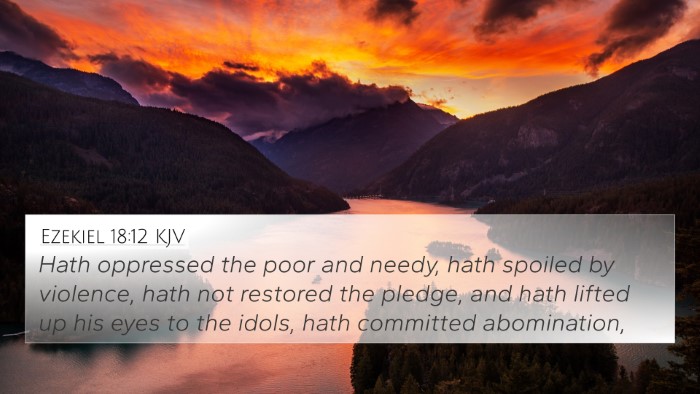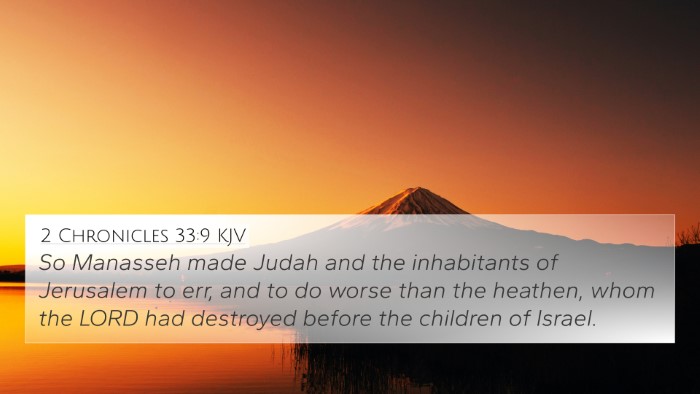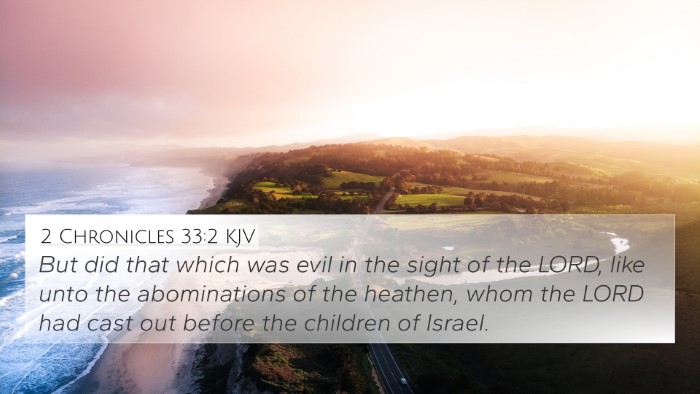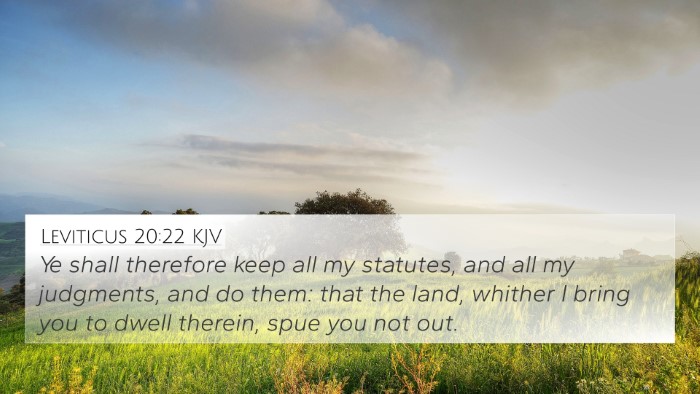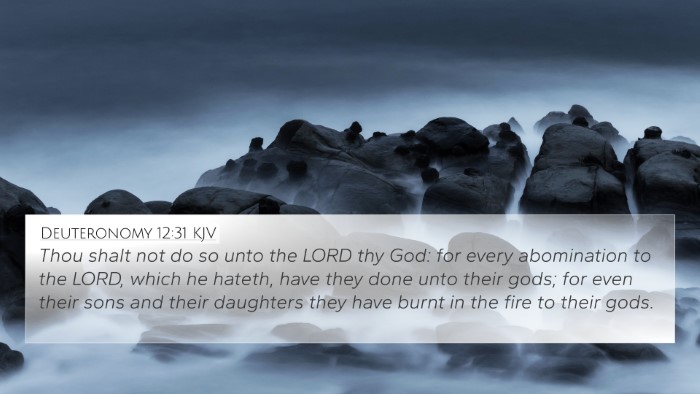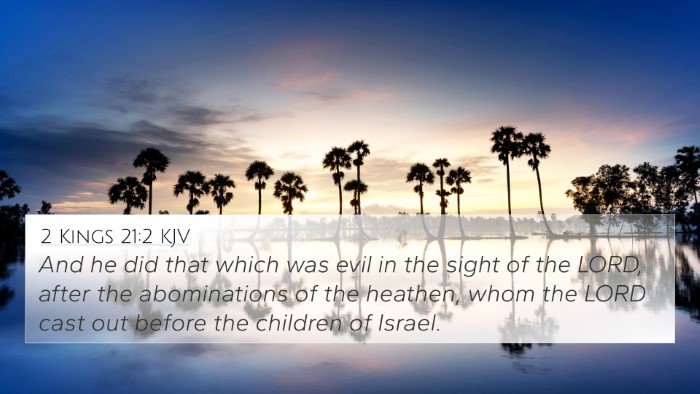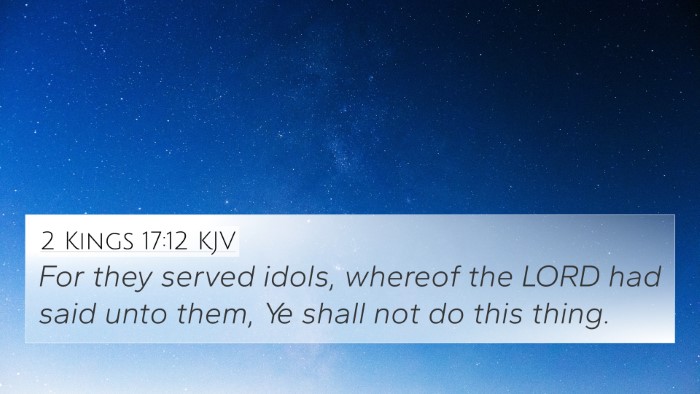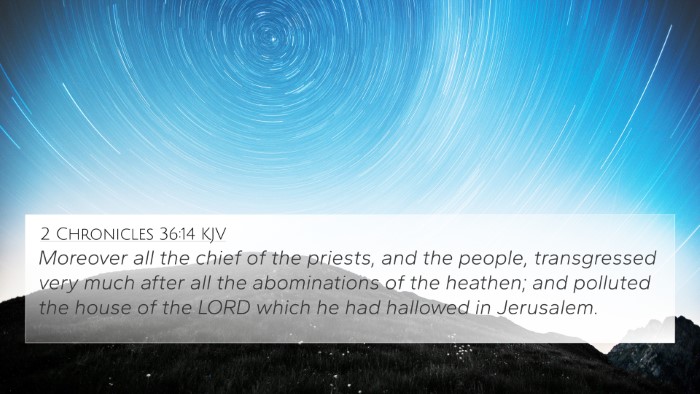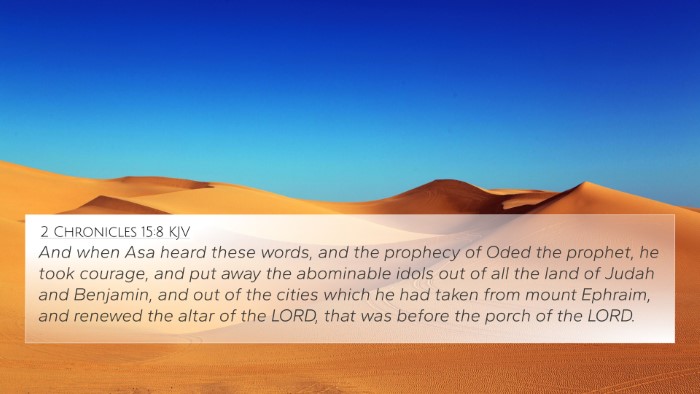Understanding 1 Kings 21:26
1 Kings 21:26 states:
"And did very abominably in following idols, according to all things as did the Amorites; whom the Lord cast out before the children of Israel."
This verse refers to the reprehensible actions of King Ahab and his wife Jezebel in leading Israel into idolatry. It emphasizes the grievous nature of their sins, particularly the worship of Baal and asherah, which mirrored the practices of the Amorites, a people historically condemned by God. The insights from various public domain commentaries provide a deeper understanding of the implications of this verse.
Matthew Henry's Commentary
Matthew Henry highlights the depths of Ahab's sin, noting that his actions were not just personal failings but a national catastrophe. The verse underscores how Ahab and his generation deviated from the worship of Yahweh, committing abominations that were influenced by the idolatries of past inhabitants of the land. Ahab's leadership, as a king, extends to his role in corrupting Israel's covenant with God.
Albert Barnes' Notes
Albert Barnes stresses the severity of idolatry as he interprets the phrase "did very abominably". He points out that Ahab's capitulation to idolatry is indicative of a broader issue within Israel, representing a failure of spiritual leadership. The connection to the Amorites serves as a grave reminder of spiritual and moral judgment, reinforcing the idea that God's patience has limits.
Adam Clarke's Commentary
Adam Clarke offers a perspective on the historical context, mentioning that the Amorites were notorious for their idolatrous practices, which were an abomination to the Lord. Clarke elaborates on the idea that Ahab's following in their footsteps signifies a willful rejection of the commandments given to the Israelites. This act of leading the nation into idolatry has dire consequences outlined throughout the biblical narrative.
Key Themes and Cross-References
This verse intertwines with numerous other passages throughout the Scriptures, emphasizing the thematic connections regarding idolatry and divine judgment. Some relevant cross-references include:
- Exodus 20:3-6 - God's commandments against idolatry.
- Deuteronomy 18:9-14 - The prohibition of pagan practices.
- 2 Kings 17:7-8 - The reasons for Israel's exile due to idolatry.
- Jeremiah 44:3 - The consequences of continued idolatry.
- Romans 1:21-23 - New Testament reflections on idolatry.
- 1 Corinthians 10:14 - A call to flee from idolatry.
- Galatians 5:19-21 - The acts of the flesh, including idolatry.
Connections and Interpretations
Connections between Bible verses allow for a layered understanding of idolatry's implications. A comparative Bible verse analysis reveals that the issues raised in 1 Kings 21:26 echo throughout both the Old and New Testaments. The theme of God's intolerance toward idol worship remains a constant into Christian teachings.
Thematic Bible verse connections show how the actions of Ahab inform us of the consequences of turning away from God, serving as warnings in contemporary discussions about faithfulness and covenant. The contrast between the fidelity demanded by God and the infidelity displayed by Ahab invites readers to ponder their own commitments to God.
Tools for Bible Cross-Referencing
For those studying these themes, tools for Bible cross-referencing such as concordances and reference resources can enhance understanding. Using a Bible concordance or a cross-reference Bible study guide can help readers uncover connections between the themes of idolatry in various parts of Scripture, allowing for a richer study of God's narrative through the Bible.
Application
In application, understanding 1 Kings 21:26 helps to engage with the concept of faithfulness in one's spiritual life. Identifying connections between Old and New Testament texts reinforces the perpetual relevance of avoiding idolatry, whether in historical practices or contemporary idols that divert attention from God.
This verse further compels us to reflect on the leaders in our lives and the influences they bear on our faith journeys. By drawing parallels and making connections through cross-referencing, we can acquire a more nuanced view of our obligations to God and the community.
Conclusion
1 Kings 21:26 serves as an important reminder of the seriousness of idolatry and its systemic effects within a society. Through the insights of respected commentators and connections drawn to other scriptures, we gain an understanding that this ancient narrative continues to resonate today. Cross-referencing biblical texts surrounding this theme provides essential lessons on fidelity, community responsibility, and the enduring challenge of remaining true to our faith amid distractions.
